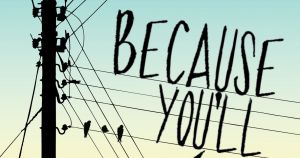
When Blind Is Forever
I used to think there would be a magical cure for my blindness. I don’t remember this, but my mother assures me it’s true.

I used to think there would be a magical cure for my blindness. I don’t remember this, but my mother assures me it’s true.

Although the author got some of the details about blindness wrong, she seems very committed to diversity, and I enjoyed this book a lot.

It felt like the author used Moritz’s echolocation as a way of avoiding a realistic portrayal of blindness; too many tired blindness tropes popped up throughout the book for me to love and champion it the way others have.

Although Laureth didn’t represent me as a blind person, Sedgwick didn’t feed off tropes and stereotypes; instead, he met with many young blind people and found out about their lives.
What kind of tips do our contributors have for authors seeking to respectfully write disabled characters?

The only way I can describe Take a Good Look by Jacqueline Wilson is a book designed to educate young children about visual impairment gone horribly wrong.